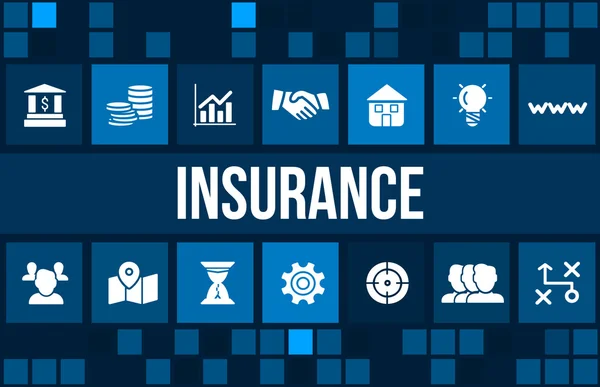Find out “What Is The Risk levels in a Business Call For The Right Insurance Coverage?” In today’s fast-paced business environment, entrepreneurs and business owners face a multitude of risks that can potentially disrupt their operations and financial stability.
These risks can stem from various sources, including economic downturns, natural disasters, legal liabilities, and more. To safeguard their businesses, it’s crucial for entrepreneurs to understand the risk levels they face and invest in the right insurance coverage. In this article, we will delve into the intricacies of risk assessment in the business world and explain why having the right insurance coverage is paramount.

Table of Contents
- 1 What Is The Risk levels in a Business Call For The Right Insurance Coverage?
- 2 Identifying Business Risks
- 3 The Importance of Insurance
- 4 Choosing the Right Insurance Coverage
- 5 Assessing Risk Levels in Different Industries
- 6 Customizing Insurance Policies
- 7 Risk Management Strategies
- 8 Case Studies
- 9 Conclusion
- 10 Frequently Asked Questions (FAQs)
What Is The Risk levels in a Business Call For The Right Insurance Coverage?
Running a business involves taking risks. Whether you are an entrepreneur starting a new venture or managing an established company, you face a myriad of risks daily. These risks can range from property damage, legal liabilities, employee injuries, to unforeseen disasters like natural calamities or pandemics.
Identifying Business Risks
Types of Business Risks
Business risks can be categorized into several types:
Financial Risks
Financial risks involve issues like economic downturns, market fluctuations, and cash flow problems. These can impact a company’s profitability and long-term sustainability.
Operational Risks
Operational risks encompass day-to-day challenges such as supply chain disruptions, technology failures, and process inefficiencies.
Compliance Risks
Compliance risks refer to the legal and regulatory requirements that a business must adhere to. Failing to comply with these can result in fines and legal troubles.
Assessing Risk Levels
To effectively manage risks, businesses must assess their risk levels. This involves evaluating the likelihood and potential impact of various risks. The risk assessment helps in prioritizing areas that need attention.
The Importance of Insurance
Mitigating Financial Losses
Insurance is a crucial tool in mitigating financial losses resulting from unforeseen events. Whether it’s a fire damaging your office space or a lawsuit filed against your company, insurance provides financial protection.
Legal Obligations
In many jurisdictions, certain types of insurance coverage are mandatory for businesses. This ensures that businesses meet their legal obligations and avoid penalties.
Attracting Investors
Investors often consider a company’s risk management strategies, including insurance coverage, before investing. Having comprehensive insurance can make your business more attractive to potential investors.
Choosing the Right Insurance Coverage
General Liability Insurance
General liability insurance covers third-party claims of bodily injury, property damage, and personal injury. It is a fundamental insurance policy for most businesses.
Property Insurance
Property insurance protects your business assets, including buildings, equipment, and inventory, from damage or theft.
Professional Liability Insurance
Professional liability insurance, also known as errors and omissions insurance, is essential for service-based businesses. It covers claims of negligence or errors in your professional services.
Workers’ Compensation Insurance
Workers’ compensation insurance provides benefits to employees who are injured on the job. It helps with medical expenses and lost wages while protecting employers from legal liabilities.
Assessing Risk Levels in Different Industries
High-Risk Industries
Certain industries inherently carry higher risks. These include construction, healthcare, and manufacturing, where workplace accidents and product liabilities are more common.
Low-Risk Industries
Some industries, such as technology and consulting, are considered low-risk. However, they are not entirely immune to risks and should still have adequate insurance coverage.
Customizing Insurance Policies
Policy Limits
When customizing insurance policies, consider the appropriate policy limits. These limits define the maximum amount your insurer will pay for covered claims.
Deductibles
Deductibles are the out-of-pocket expenses you must pay before insurance coverage kicks in. Choosing the right deductible can impact your premium costs.
Additional Coverage Options
Explore additional coverage options tailored to your business needs, such as business interruption insurance or cyber liability insurance.
Risk Management Strategies
Employee Training
Properly trained employees can help prevent accidents and minimize risks in the workplace. Invest in employee training programs to enhance safety.
Emergency Preparedness
Having a robust emergency preparedness plan in place is crucial for mitigating risks related to natural disasters or other crises.
Cybersecurity Measures
In the digital age, protecting your business from cyber threats is essential. Implement strong cybersecurity measures to safeguard sensitive data.
Case Studies
Success Stories
Read about businesses that successfully managed risks through comprehensive insurance coverage.
Costly Mistakes
Learn from the mistakes of companies that neglected insurance and faced significant financial consequences.
Conclusion
In the unpredictable world of business, risk management is non-negotiable. Understanding the risk levels your business faces and securing the right insurance coverage is a proactive step towards safeguarding your enterprise’s future. Remember, insurance isn’t just an expense; it’s an investment in your business’s resilience.
Frequently Asked Questions (FAQs)
- Do all businesses need insurance, regardless of size?
- Yes, insurance is essential for all businesses, regardless of their size. The type and extent of coverage may vary, but some level of protection is necessary.
- How can I determine the right insurance coverage for my business?
- Consulting with an insurance professional is the best way to determine the specific insurance needs of your business.
- Is it possible to reduce insurance premiums without compromising coverage?
- Yes, you can often reduce premiums by implementing risk management strategies, increasing deductibles, and exploring discounts offered by insurers.
- What should I do if my business faces a claim or lawsuit?
- Contact your insurance provider immediately and follow their guidance. It’s essential to report claims promptly to ensure timely assistance.
- Can insurance help with reputation management in case of a crisis?
- Yes, insurance coverage such as public relations crisis management can help protect your business’s reputation during challenging times.
Don’t miss | The 9 Simplest Fat Loss Tips for Women Over 30









